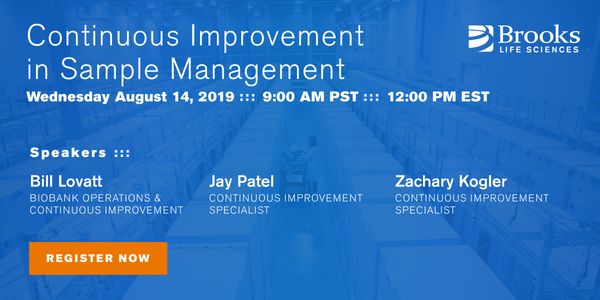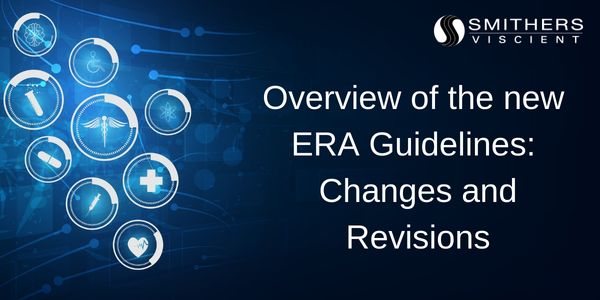Science
Science is the pursuit and utilization of information and comprehension of the normal and social world after a methodical procedure dependent on proof. All in all, a science includes a quest for information covering general facts or the activities of essential laws.
-
AUG 29, 2019 | 9:00 AMDATE: August 29, 2019TIME: 9:00am PT/ 12:00pm ET Monoclonal antibodies (mAbs) are a cornerstone of modern biomedical research and biotherapeutics. Therefore, reproducibly obtai...AUG 29, 2019 | 8:00 AMDate: August 27, 2019Time: 11:00am PDT, 2:00pm EDTBackground: Clinical guidelines for H. pylori screening and post-treatment testing endorse the use of urea breath test (UBT), H. py...Speaker: Dylan Pillai, MD, PhD, FRCPC (C)AUG 27, 2019 | 9:00 AMDATE: August 27, 2019 TIME: 9:00am PDT, 12:00pm EDT Immunotherapies targeting PD-1 or PD-L1 have proven remarkably effective for treating cancer in some patients, with considerabl...AUG 27, 2019 | 8:00 AMDATE: August 27, 2019TIME: 08:00 AM PDTOur laboratory is exploring hypotheses about how lipid metabolism contributes to racial disparities in Alzheimer’s disease using comprehen...Standards setting is an important process for improving forensic science. Guidelines, minimum practice and best standards all have their place in forensic toxicology. This lecture will focus...
DNA profiling tools to teach undergraduate students about forensics generally utilize the PV92 Alu and D1S80 VNTR markers, but are both limited in scope. In contrast, advanced profiling syste...
Contemporary law enforcement has greatly expanded its ability to solve crimes by the adoption of advanced forensic techniques, electronic monitoring and new approaches in crime scene procedur...
The incidence of conditions such as diabetes, obesity, asthma, and cancer have increased substantially in the past 30 years. The human genome has not changed in that period of time, so the en...
Prediction of human response to chemical exposures is the primary challenge of pharmaceutical and environmental toxicology research. The complexity of human responses to xenobiotic exposures...
AUG 20, 2019 | 9:00 AM
DATE: August 20, 2019TIME: 9:00am PDTDo you work with heat sensitive or volatile samples that require you to reduce sample volume through evaporation or sublimation? Are you unsure of...
AUG 15, 2019 | 9:00 AM
DATE: August 15, 2019TIME: 9:00am PDT, 12:00pm EDT Radiation therapy is a critical tool for the treatment of brain tumors, however, exposure to high doses of ionizing radiation...
AUG 14, 2019 | 9:00 AM
DATE: August 14, 2019TIME: 9:00am PT. 12:00pm ET Implementation of Lean Methodology in Biobanking Operations to standardize sample management processes is effective. Each proce...
AUG 14, 2019 | 8:00 AM
DATE: August 14, 2019TIME: 8:00am PDT Infectious disease surveillance and monitoring is critical in settings where disease outbreaks and antibiotic resistance can dramatically im...
AUG 13, 2019 | 10:00 AM
DATE: August 13, 2019TIME: 10:00am PDTWhether you are new to live-cell imaging or an experienced researcher, this webinar will show you how to obtain publication-quality live-cell image...
AUG 13, 2019 | 9:00 AM
DATE: August 13, 2019TIME: 9:00am PT, 12:00pm ET, 5:00pm BST Molecular complexes are major constituents of cells, hence unraveling their mechanisms is key to fuller comprehension of c...
AUG 07, 2019 | 7:00 AM
DATE: August 7, 2019TIME: 7:00am PDTCore facilities have to find their way between company promises, reality, their needs and economical constraints. Platforms have to fulfil the require...
JUL 31, 2019 | 9:00 AM
DATE: July 31, 2019TIME: 9:00am PT, 12:00pm ET The choroid plexus, which makes up the blood-cerebrospinal fluid barrier in the central nervous system (CNS), lines the ventricle...
JUL 30, 2019 | 10:00 AM
DATE: July 30, 2019TIME: 10:00am PT/ 1:00pm ET The importance of building a validation structure within your lab cannot be overstated. Once in place, the ability to identify high...
JUL 30, 2019 | 6:00 AM
DATE: July 30, 2019TIME: 6:00am PT, 9:00am ET The current version of the EMA Guideline for the environmental risk assessment of human drugs was published in 2006. This guidance...
JUL 25, 2019 | 9:00 AM
DATE: July 25, 2019TIME: 9:00am PT, 12:00pm ET Vaginitis / vaginosis (V/V) is defined as a spectrum of conditions that cause vaginal and sometimes vulvar symptoms, such as itch...
JUL 24, 2019 | 9:00 AM
DATE: July 24, 2019TIME: 9:00am PT, 12:00pm ET This webinar offers an overview of C. difficile diagnostic test methods, discussion on the controversy regarding the best laborat...
Speaker:
Karen Carroll, MD
, Masako Mizusawa, MD, PhD, MS
JUL 24, 2019 | 8:00 AM
DATE: July 24, 2019TIMEL 8:00am PT Mass cytometry (CyTOF®) is a powerful approach to characterize the immune composition of complex biological specimens and gain insights in...
JUL 23, 2019 | 10:00 AM
DATE: July 23, 2019TIME: 10:00am PDTThe tumor microenvironment is a complex network of different cell types and states that imparts distinct properties to the tumor and plays a signif...
Speaker:
Doug Hinerfeld, PhD
, Chris Merritt, PhD
, Anushka Dikshit, PhD
Sponsored By: Advanced Cell Diagnostics
JUL 17, 2019 | 9:00 AM
DATE: July 17, 2019TIME: 9:00am PDTViral infections, including those caused by cytomegalovirus (CMV), Epstein-Barr virus (EBV) and BK virus (BKV) are an important cause of morbidity and...
AUG 29, 2019 | 9:00 AM
DATE: August 29, 2019TIME: 9:00am PT/ 12:00pm ET Monoclonal antibodies (mAbs) are a cornerstone of modern biomedical research and biotherapeutics. Therefore, reproducibly obtai...
AUG 29, 2019 | 8:00 AM
Date: August 27, 2019Time: 11:00am PDT, 2:00pm EDTBackground: Clinical guidelines for H. pylori screening and post-treatment testing endorse the use of urea breath test (UBT), H. py...
Speaker:
Dylan Pillai, MD, PhD, FRCPC (C)
AUG 27, 2019 | 9:00 AM
DATE: August 27, 2019 TIME: 9:00am PDT, 12:00pm EDT Immunotherapies targeting PD-1 or PD-L1 have proven remarkably effective for treating cancer in some patients, with considerabl...
AUG 27, 2019 | 8:00 AM
DATE: August 27, 2019TIME: 08:00 AM PDTOur laboratory is exploring hypotheses about how lipid metabolism contributes to racial disparities in Alzheimer’s disease using comprehen...
Standards setting is an important process for improving forensic science. Guidelines, minimum practice and best standards all have their place in forensic toxicology. This lecture will focus...
DNA profiling tools to teach undergraduate students about forensics generally utilize the PV92 Alu and D1S80 VNTR markers, but are both limited in scope. In contrast, advanced profiling syste...
Contemporary law enforcement has greatly expanded its ability to solve crimes by the adoption of advanced forensic techniques, electronic monitoring and new approaches in crime scene procedur...
The incidence of conditions such as diabetes, obesity, asthma, and cancer have increased substantially in the past 30 years. The human genome has not changed in that period of time, so the en...
Prediction of human response to chemical exposures is the primary challenge of pharmaceutical and environmental toxicology research. The complexity of human responses to xenobiotic exposures...
























